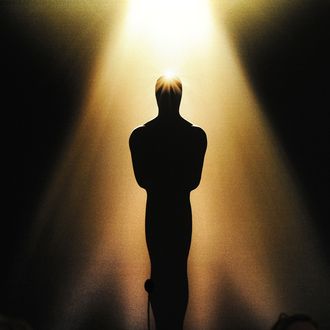
Update, Tuesday March 1, 4:06 p.m.: The Academy of Motion Picture Arts and Sciences wants to clear up some things after making itself a Film Twitter villain last week. After Academy members received a letter stating that the Oscars will cut eight live award presentations from this year’s broadcast, AMPAS CEO Dawn Hudson and president David Rubin told Deadline what the changes will look like. Hudson assures fans that “every category will be celebrated on our live broadcast.” “The creative team and the production team will highlight the moments that count the most, the potent emotional speeches, likely the reaction when a name is called,” adds Rubin. “But there’s also a lot of that other time that’s involved in getting up onto that stage and finding that piece of paper and just looking to see if it’s time to speak. All of that stuff is part of it, but we’ll get to the most potent affecting emotional parts of the event.”
Or as Carly Rae Jepsen would say, they wanna cut to the feeling. This is all a rephrasing of what AMPAS said in its letter: These awards will be presented one hour before the broadcast, and “electric” moments from these speeches will be edited down and incorporated into the live show. It’s worth noting that the people who will be scrambling to get these clips cut down and timed correctly will be … editors — a group of filmmakers the Oscars have cut from the live stretch of the show.
The eight categories will be presented in the Dolby Theatre in front of “a full audience in their seats, not seat fillers” with full-length speeches an hour before the telecast begins at 4 p.m. PT. … except the red-carpet show will take place outside the theater simultaneously, so the seats won’t all be full. The Hollywood Reporter notes that results from the ceremony’s first hour will be shared on social media as they happen, meaning the winners will be “spoiled” in advance of the broadcast for viewers at home, surely taking away some of the “potent affecting emotional” punch of the edited-down prerecorded speeches that AMPAS insists will be an improvement. But hey, if we’re lucky, at least we’ll get to see James Corden dressed as a mouse thanking all the Camilizers for their dedication to Amazon Prime’s Cinderella.
Original story follows.
The Oscars are having an identity crisis. The Academy of Motion Picture Arts & Sciences has been sweatily trying to appeal to mass audiences in order to reclaim the mainstream centrality it once had back when the height of entertainment was Billy Crystal doing a rhyme. Viewership numbers have plummeted over the past decade, following overall live-broadcast viewership trends. It might not be worth having an existential spiral over, but the Oscars’ response has been to try to reel casual viewers back in with efforts like announcing a fan vote that will be honored during the ceremony. And on February 22, the Academy announced that eight of its less celebrity-fueled categories will be axed from the broadcast altogether. That’s one-third of the Oscars’ total awards.
A letter released to Academy members seen by The Hollywood Reporter says that “the in-person ceremony at the Dolby Theatre will begin one hour earlier to present eight awards categories before the live telecast starts.” These early awardees’ speeches will then be edited down and aired in brief at some point during the broadcast rather than aired in full, live. The demoted categories are:
- Documentary (Short Subject)
- Film Editing
- Makeup and Hairstyling
- Music (Original Score)
- Production Design
- Short Film (Animated)
- Short Film (Live Action)
- Sound
The letter states that these decisions are in service of keeping the show “vital, kinetic, and relevant,” and that the exclusion of these categories’ live presentations will make the broadcast “tighter and more electric.” This language implies that these crafts are not “vital” or “relevant,” which could not be further from the truth for categories like editing. When it’s good, it can be seamless to the point of invisibility, making it extra-crucial that it gets a moment to be singled out, explained, and celebrated every year at the Oscars.
Furthermore, these categories often offer the most “kinetic” and “electric” moments of each year’s broadcasts. Because their winners are not media-trained celebrities and do their work off-screen, their acceptance speeches are so often surprising, heartwarming, unexpected, funny, and memorable. Take the 2016 ceremony, where one of the prevailing narratives and highlights of the night was watching all of the craftspeople win and act altogether delighted, one after another, for Mad Max: Fury Road.
And pay attention to which technical categories weren’t chopped from the broadcast: Costume Design and Visual Effects. God forbid they lose any screen time for Spider-Man, Cruella, and Free Guy.
Decisions made in service of wooing non-viewers alienate Oscars fans, the ceremony’s base who make an event of watching it live and gassing up the event on social media every year. These are the people who make Oscar ballots and bingo cards and punny food and become overnight sound-mixing experts. If you’re reading this Oscars story on vulture-dot-com, odds are you’re one of these people. And you too may be disappointed that the Oscars are foregoing moments of recognition for hard-working technical experts in favor of more time for extra starfuckery and desperate attempts at manufacturing TikTok moments. But we should probably be grateful for what we have now. In two years, the Oscars might take place entirely in the metaverse and be hosted by the green M&M.


